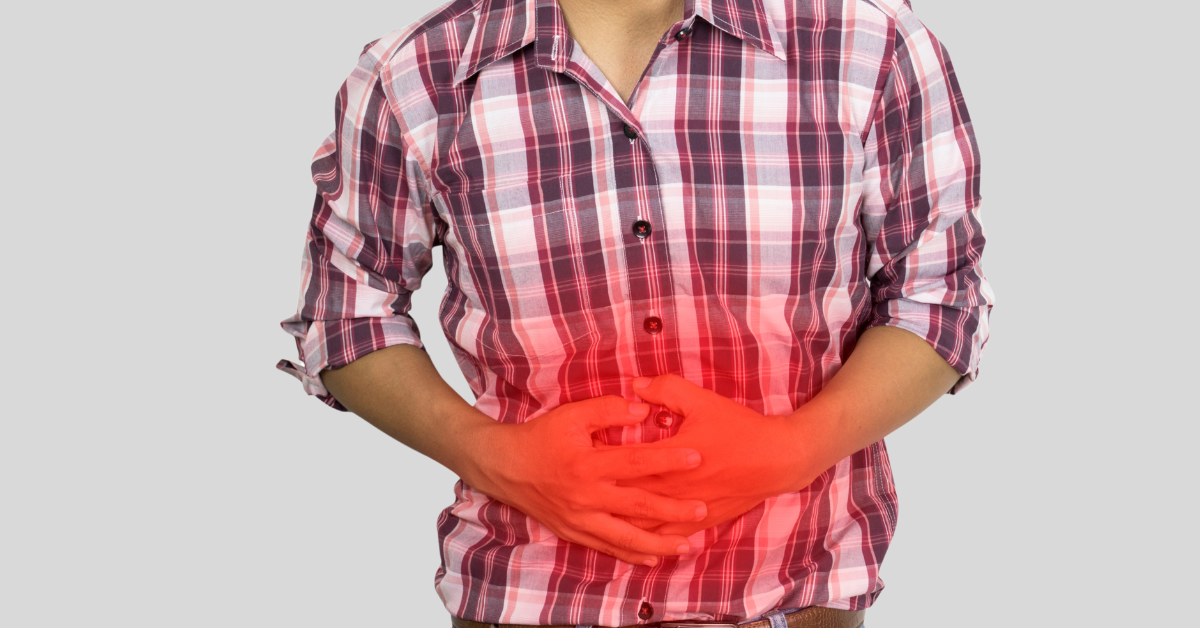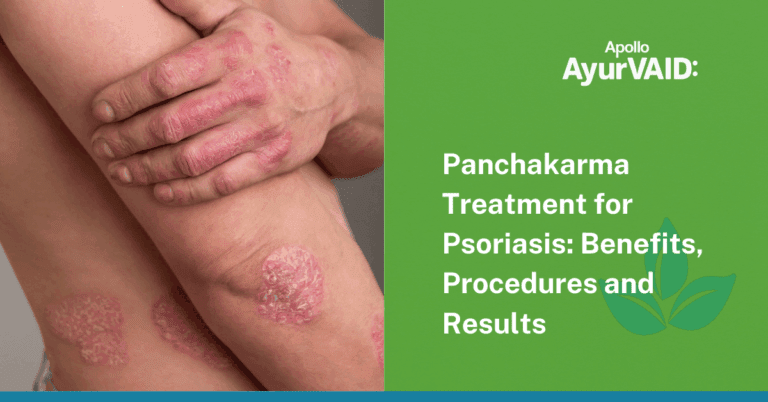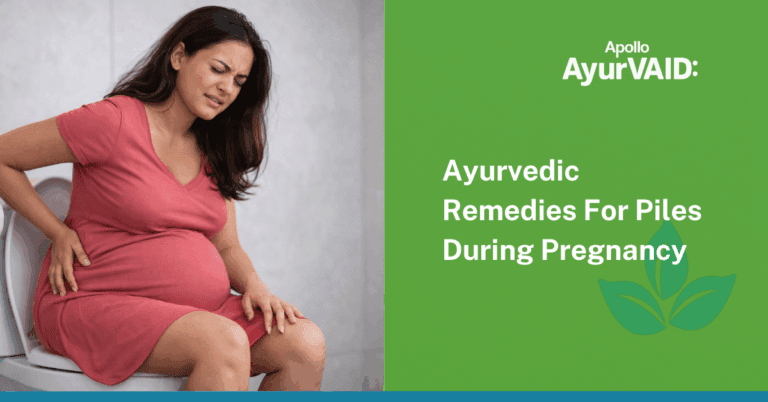Ulcerative colitis is a type of chronic inflammatory disease of the gastrointestinal tract, causing physical as well as emotional agony. It has symptoms such as frequent bowel movements, abdominal pain, and rectal bleeding. The overall effect of these manifestations goes beyond their impression on daily living and quality of life. The uncertainty of flare-ups, the restrictive dietary measures, and the persistent worry about gut health could lead to frustration and tiredness.
Ayurveda and Ulcerative colitis treatment approaches are built beyond symptomatic relief. The Ayurvedic treatment or cure for ulcerative colitis intends to re-establish equilibrium after pacifying the aggravated Pitta Dosha , reducing tissue inflammation, and accelerating reconstitution. Ayurveda connects Ulcerative colitis to disorders of Raktatisara andPravahika, which originate from excessive aggregation of Pitta, leading to mucosal damage. This blog is about Ayurvedic remedies for ulcerative colitis, including some special Vasti therapies such as
Piccha Vasti and Anuvasana Vasti , which are pivotal in promoting, maintaining, promoting complete cure, and restoring digestive health naturally.

Ayurvedic Treatment for Ulcerative Colitis
Ulcerative colitis represents a persistent inflammatory ailment in the colon, resulting in some or all manifestations: diarrhoea, rectal bleeding, tenesmus, mucus passage, and crampy abdominal pain. Modern medicine defines Ulcerative colitis as an ‘immune-mediated disease of yet undetermined etiology’. Ayurveda states that the symptoms occur in certain conditions, such as Pravahika or Raktatisara. Raktatisara resembles Ulcerative colitis, especially blood in stools due to colonic and rectal mucosa ulceration. Pittatisara, one form of diarrhoea due to an imbalance in Pitta dosha(the bioenergy concerned with heat, metabolism, and transformation), is a precursor of Raktatisara. Pitta-vitiating food and drink consumption by a patient suffering from Pittatisara can lead to Raktatisara. Thus,
Raktatisara can be understood as a chronic stage of Pittatisara. Impairment ofJatharagni
(digestive fire) is a fundamental cause of various gastrointestinal disorders. This impairment, known as Mandagni(hypo functioning of digestive fire), is cited as the main root cause of Raktatisara and Pravahika. Specific causes mentioned include:
- Excessive intake of sour, salty, pungent, alkaline, hot, and irritant foods.
- Constant exposure to scorching sun, fire, and hot wind.
- Psychological stress, including anger and envy.
- Intake of heavy, excessively fatty, rough, hot, liquid and solid, cold, and incompatible foods.
- Eating before the previous meal is digested.
- Improperly cooked food and consumption of contaminated water and excessive wine.
- Suppression of natural urges.
- Excessive sporting in water and worm infestations.
- Ingestion of toxic substances.
- Drinking large quantities of water and eating the meat of emaciated animals.
- Intake of sesame paste, germinated grains, and dry food.
Ayurvedic remedies for Ulcerative colitis aim to heal the ulcers, restore colon function, and disperse the root cause, mainly Agnimandhya(digestive weakness). The first line of treatment involves Ama(undigested waste product/toxins) and the digestibility of the food taken by the person.
Ayurvedic cures for Ulcerative colitis include -
- Agni Deepana (to kindle Agni): To improve metabolism and prevent the formation of Ama.
- Ama Pachana (clearing Ama): To eliminate the already-formed Ama.
- Grahi (antidiarrhoeal): To reduce the frequency of stools.
- Stambhana (control or arrest bleeding): To stop bleeding from the rectum.
- Dhatu Poshana (nutrition supplement at tissue level): To restore lost nutrients and help tissue healing.
- Sattvavajaya Chikitsa (psychotherapy): To address the psychological factors such as stress and anxiety.
Based on the patient’s condition, treatment starts with Langhana (fasting) followed by light, easily digestible foods like Yavagu (thick gruel) prepared with digestive and carminative herbs. Grahi drugs are generally avoided in Amavasta.
- Grahi medicines can be administered in the Pakva (digested) stage. Treatment modalities include Shamana Chikitsa (pacifying therapy) and Shodhana Chikitsa (purification therapy).
- Local Application: For anal inflammation, cold decoctions of herbs can be used. Medicated ghee can also be applied locally for weakness of the anus.
Shodhana Chikitsa (Purification) plays a crucial role, especially Vasti Karma (enema therapy).
- Piccha Vasti (Slimy Enema): Considered best for Raktatisara, it has Shothahara (anti-inflammatory) and Vrana-Ropaka (ulcer-healing), Rakta Stambhaka (haemostatic), and Sangrahi (anti-diarrhoeal) properties.
- Anuvasana Vasti (Oil Enema): Beneficial in chronic stages when Vata is dominant and there is inflammation in the anorectum.
Dietary Recommendations (Pathya)
Ayurveda emphasises a specific diet for managing Ulcerative colitis:
- Recommended Foods: Cow ghee, medicated ghee, goat’s milk (boiled with water), buttermilk, old basmati rice, barley, moong dal, certain other lentils, raw banana, Jamun, bael fruit, pomegranate, curd, and spices like coriander, cumin, and ginger are generally suitable.
- Foods to Avoid: Leafy vegetables, black gram beans, spicy things, white sugar, wheat, pasta, vinegar, salty and sour foods, raw salads, Areca nut, mango, tea, cold drinks, ice cream, alcohol, and smoking should be avoided. Also, it is equally important that we manage psychological factors such as stress, anxiety, fear, and grief.
An Ayurveda treatment programme would include Vasti therapy, oral herbal medicine, and dietary modification. These modalities alleviate symptoms and balance the dosha s. Ayurveda interventions, therefore, can be safely effective in the management of ulcerative colitis.
Ayurveda treatment protocols offered by AyurVAID address the root causes of disease. Ayurveda treatment for Ulcerative colitis involves an integrative approach of symptom analysis, case history taking, and understanding the patient’s condition. Ayurveda doctors at AyurVAID provide ergonomics, nutrition, and lifestyle interventions addressing outcome-based herbal medications, personalised protocols, and lifestyle consultations to improve the health-related quality of life of the patient.
Conclusion
Ulcerative colitis is a disease that closely resembles Raktatisara/Pravahika, caused by improper digestion and increased Pitta Dosha. Treatment includes restoration of digestion, detoxification, inflammation pacification, and healing by a mixture of individualised diet, lifestyle alterations, oral medications, and cleansing therapies, such as Vasti Karma, with Piccha Vasti being the most suitable. Ayurveda interventions are useful in alleviating symptoms and elevating the quality of life for patients suffering from Ulcerative colitis.

References
- Patel MV, Patel KB, Gupta SN. Effects of Ayurvedic treatment on forty-three patients of ulcerative colitis. Ayu. 2010 Oct;31(4):478-81. doi: 10.4103/0974-8520.82046. PMID: 22048543
- Khanal, Hari & Krishniya, Kiran & Joshi, Ram. (2020). AYURVEDIC PERSPECTIVE OF ULCERATIVE COLITIS AND ITS MANAGEMENT -A REVIEW. World Journal of Pharmaceutical Research. 9. 461-478. 10.20959/wjpr20209-18383. https://www.researchgate
.net/publication/346030548_
AYURVEDIC_PERSPECTIVE_OF
_ULCERATIVE_COLITIS_AND_ITS_
MANAGEMENT_-A_REVIEW - Peshala KKV, S et al. (2019). AYURVEDA APPROACH FOR MANAGEMENT OF ULCERATIVE COLITIS: A REVIEW. International Journal of Research in Ayurveda and Pharmacy. https://doi.org/10.7897/2277-4343.10016
- Mori, V et al. (2023). Ayurvedic management of Ulcerative Colitis: A Case Study. Journal of Ayurveda and Integrated Medical Sciences. https://doi.org/10.21760/jaims.8.3.29 Kumar, P et al. (2022). Ayurvedic Management of Ulcerative Colitis: A Case Study. International Journal of Ayurveda and Pharma Research. https://doi.org/10.47070/ijapr.v10i6.2388






